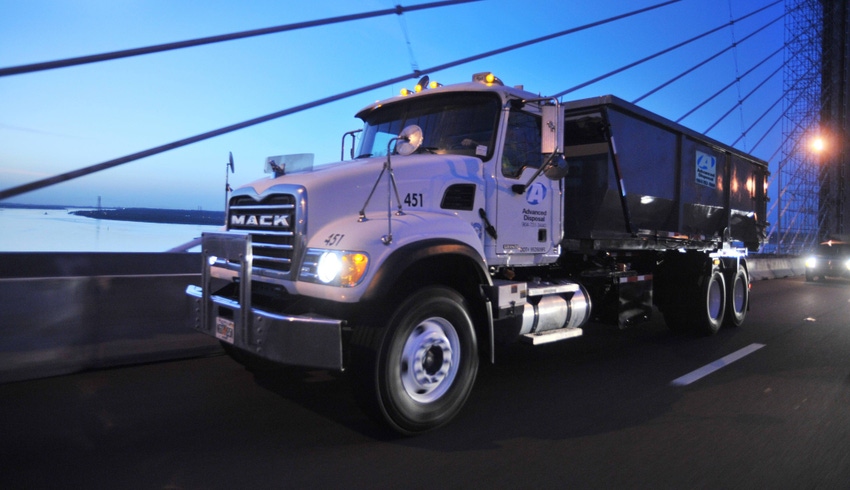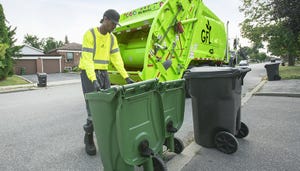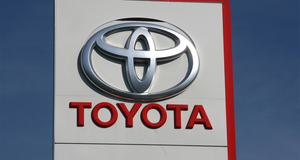Advanced Disposal on the Advance
Advanced Disposal continues to grow through its embrace of proven strategies and practices.
July 1, 2011

By Mike Fickes, Contributing Writer
I want our managers to act like owners and entrepreneurs and wake up at 3:00 a.m. worrying about business just like I do,” says Charles C. Appleby, chairman and CEO and one of the founding partners of Jacksonville, Fla.-based Advanced Disposal Services, Inc. “That is the acid test of whether or not you are running your business the way you should.”
The past decade must have seen lots of sleepless nights among Advanced Disposal managers: Since its founding in 2000, the company has gone from a few million dollars in revenues per year to $321.8 million in revenue in 2010. In the most recent Waste Age 100, this magazine’s annual ranking of the largest waste firms, Advanced Disposal ranked 15th (the most recent ranking appears in Waste Age’s June 2011 issue). Impressively, the company grew right through the recession, logging revenues of $181 million in 2007, $246 million in 2008 and $261 million in 2009.
In the end, though, Advanced Disposal’s success is based on more than work-induced insomnia. It stems from a strategy of building “integrated geographic hubs” to control its waste stream, an almost relentless pursuit of acquisitions and a focus on applying recognized best business practices. In short, Advanced Disposal is a case study in basic waste management blocking and tackling. “It isn’t rocket science,” Appleby says.
Building Hubs
Today, Advanced Disposal operates from 56 locations across Alabama, Florida, Georgia, Mississippi, North Carolina and South Carolina. “We are focused on the Southeast — if it snows, we don’t go,” Appleby quips.
The locations include the corporate office in Jacksonville, 21 hauling operations, 16 transfer stations with a new one under construction, eight material recovery facilities (MRFs), six construction and demolition (C&D) landfills, and four solid waste landfills. Advanced Disposal’s 1,600-plus employees service 149 city and county contracts with more than 761,000 residential customers. The company also has more than 45,500 commercial, industrial and C&D customers.
The business strategy of Advanced Disposal is to establish what it calls “integrated geographic hubs” featuring the full range of waste facilities. Metro Atlanta illustrates how this idea works. The company has solid waste landfills in Ball Ground, just north of Atlanta, and in Forsyth County, just outside of Macon. Advanced Disposal also owns C&D landfills in Lithonia and Athens. A handful of MRFs and eight transfer stations round out the hub.
The hub concept enables the company to grow by competing for new business that can easily be controlled and managed through its various facilities. “The idea is to collect and then direct haul or transfer to recycling operations,” Appleby says. “What can’t be recycled we dispose of, typically in our landfills.”
“We control the waste stream from inception to beneficial re-use and recycling,” Appleby adds.
Advanced Disposal also has grown by making acquisitions that serve the hub concept. “We look for companies in our footprint and move into other markets where we see possibilities for geographic integration,” Appleby says.
Since its founding, Advanced Disposal has made more than 80 acquisitions for more than $475 million. In 2006, New York-based HighStar Capital, a private equity investment firm, purchased the company for $470 million. Called a recapitalization, the transaction bought out founder Andy Crawford (see “In the Beginning” on the bottom of this page) and reallocated equity among the company’s existing executives.
The cash infusion enabled the firm to continue acquiring companies — at good prices — right through the recession. Consequently, by the end of this year, Advanced Disposal will have doubled its 2007 revenues of just more than $180 million to about $360 million, the company predicts. “We saw the recession as an opportunity to take advantage of prices, and we continued to pursue our acquisition and internal growth strategies throughout,” Appleby says.
A stroke of luck also contributed to the company’s ability to continue growing during the recession. “In 2006 and 2007, we made a conscious decision to move away from residential homebuilding,” Appleby says. “We didn’t see the housing collapse coming, but as many people in the waste industry say, ‘You are in business for profit, not practice,’ and homebuilders, particularly the smaller companies, resist making their last payments. There is a lot of profit in the last payments. So we moved away from that business and didn’t have as much exposure to losses from that business as other waste companies might have.”
Best Practices
Advanced Disposal manages its business by applying recognized best business practices whenever it can. These practices include using management training, implementing up-to-date technologies, installing environmentally friendly projects and building good relations with its communities.
Manager training. The company has developed a manager trainee program that President and COO Wally Hall calls instrumental in identifying rising stars. “The program seeks to groom individuals who show particular strength in management,” he says. “The program is offered for hauling facilities and landfills. To date, 12 people have successfully completed the program.”
Technology. Advanced Disposal applies the latest technologies on the road and in the office. “I foresee continued changes in the solid waste industry as technology advances,” Hall says. “Energy and fuel alternatives will become more affordable and accessible, and collection and recycling systems will become more automated.”
The company used global positioning systems (GPS) to track and manage collection trucks on the road and compactor operations at landfills. “With roll-offs in particular, GPS enables you to route trucks and drivers in ways that maximize efficiencies in multiple [ways], including time, fuel, traffic and need,” Hall says. “We’re also pleased with GPS systems on our landfill compactors. They have increased density and streamlined operations greatly, yielding significant savings in airspace as well as cover dirt.”
Advanced Disposal also is installing the newest automated sorting systems in its dual- and single-stream recycling plants. “We’re using high technology lasers, air jets and polishing screens to enhance paper grades,” Hall says. “Eddy currents and other tools allow us to process mixed recyclables more efficiently.”
In the office, the company uses RouteSmart to ensure collection trucks are running the most efficient routes possible. “When I started in the business, routing entailed a huge map on the wall, magic markers, colored pins, green-bar paper and a lot of wishful thinking,” Hall chuckles. “Today, we’ve trained employees in each of our markets to use RouteSmart. Still, routing software can’t replace the common sense and physical overview of experienced drivers. We still supplement the electronic routing with the knowledge of experienced drivers.”
While the company is interested in technology in all of its forms, it tends not to plunge headlong into things without careful study and consultation with customers. The company’s philosophy of automated collections illustrates that. “We do not assume that we know what customers want better than they know,” Hall says. “We work with customers to tailor residential collection programs that work best for their constituents, the current recycling infrastructure, their geographic and demographic profile, and their financial capabilities.”
“We have no policy for or against automated, semi-automated or manual collection routes,” Hall adds. “There are pros and cons to each, and the benefits of automated collection may not necessarily match up with the goals of particular communities. We’ve been successful in implementing all three kinds of collections throughout our footprint, and we’ll continue to do that.”
Environmental practices. Advanced Disposal has begun to equip its landfills with gas-to-energy installations. Three of the company’s four solid waste landfills have operational landfill gas-to-energy systems. The newest landfill, which opened in November 2010, does not yet generate enough gas to power an electrical generating system. “We will install a system at the appropriate and economically feasible time,” Hall says.
The company also regularly hosts community cleanups and electronic recycling events throughout its six-state area, often teaming with cities or counties to increase turnout. Over the years, the company’s environmental practices have earned it a number of awards, including a Mississippi Recycling Coalition Environmental Hero Award and a Business of the Year award from Keep Forsyth County (Ga.) Beautiful, both of which the company won in 2009.
Community relations. Advanced Disposal views community relations as a way to stay close to customers as well as an educational opportunity. To that end, the company hosts dozens of landfill tours every year at each of its solid waste and C&D landfills. These tours allow students, youth organizations, and business and community leadership groups to receive behind-the-scenes looks at what happens to garbage after it disappears from the curb.
Several times a year, the company hosts “Fun in the Field” festivals at two of its landfills. Activities include carnival games, pony rides, food, and, of course, tours. Recycling contests also are held at the festivals, with proceeds going to local schools.
Finally, the company supports a variety of events and causes in its communities, including Relay for Life, American Cancer Society, Habitat for Humanity, National Marathon to Finish Breast Cancer, Second Harvest Food Bank, National MS Society, and local Keep America Beautiful affiliates.
Looking toward his company’s future, Appleby expects more high-octane growth. He plans to surpass $500 million in revenue by 2015.
Sounds like some sleepless nights are on the horizon.
Michael Fickes is a Westminster, Md.-based contributing writer.
SIDEBAR: In the Beginning
Andy Crawford, a 2006 inductee into the Environmental Industry Associations’ Hall of Fame, founded Advanced Disposal in 2000. Crawford learned the waste business between 1971 and 1977 while working for other companies. In 1977, he bought a six-truck garbage company and built it into Southland Waste Systems, a $35 million regional power with 200 employees. In 1995, Crawford sold Southland as one of the famous six-pack of companies acquired by Wayne Huizenga as he began to build Republic Services into his second major contribution to the waste industry.
Five years later, free of non-compete agreements, Crawford launched Advanced Disposal. Over the next six years, he built it into a $100 million company with nine collection facilities, seven landfills and seven transfer stations.
In 2006, Crawford stepped back and sold the company to a private equity firm, New York City-based HighStar Capital, for $470 million. Called a recapitalization, the transaction bought out all of management’s equity shares, including Crawford’s, leading him to retire from the post of president and CEO. Charles C. Appleby, one of the company’s founding partners, took over.
As part of the recapitalization process, the remaining executive level managers received new equity shares from HighStar. The company also offers a stock option plan in which general managers, district managers and other key personnel participate. Based on performance, the stock option plan is among the incentives that Appleby has used to build his “highly incentivized management team.” — MF
You May Also Like


